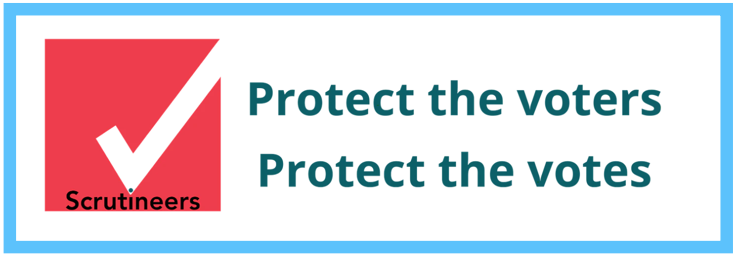In our membership site, people can connect with others in their state and get help figuring out the most important election protection activities in their community. Or they can connect with folks in a state they're particularly concerned about.
JB: That makes sense.
EL: Some of our trainings are background information everyone will need, like an introduction to the various electronic systems used to count votes and an overview of what election security advocacy entails. Others will apply only in some places, like how digital ballot images can be used by a campaign or a community to provide election oversight.
We've got a training session about how to talk with election officials, because we really want our members to do their best to create good relationships in their local election offices or election boards.
And then there are (and will be more) action-specific trainings, like how to do a public records request, how to count votes on ballot images, how to do phone banking to fight voter suppression, how to photograph poll tapes as part of an election verification project.
We'll be having some training that's specifically designed for poll workers. When you get hired to work the polls in a community, you'll get trained on how to set up the machines, check people in, that sort of thing. We're going to provide supplementary training on how to keep your eyes open for legal and security issues while working as a poll worker.
The way our trainings are organized, you can do the ones that are of interest to you.
You asked how election protection work helps. For one thing, it lets election officials and staff know that the community is watching. In and of itself, that can lead to better practices. The job of running an election is always hard, and it's even harder this year. When you have more to do than you can possibly do well, it's tempting to cut corners. But when the public is watching, you're less likely to do that, right?
Sometimes election protection workers can prevent problems from happening. For example, you might find out that your county isn't planning to print enough paper ballots, and be able to bring pressure in time to get that changed.
In 2016 after the primary election in California, a small team of election monitors discovered an error that was being made in processing the ballots. They spoke up and got that error corrected, and that saved an estimated 66,500 presidential votes from being discarded! Our work can make a huge difference.
Some of what we'll need to do will be different this year because more people will be voting by mail. For example, you may want to advocate for secure drop boxes to be provided in your community for people to drop off their ballots. And because of COVID, some of the monitoring activities may happen remotely with the use of video cameras or screen-sharing. The need for changes like this is one of the reasons we need to start working with our local election officials now, so we can negotiate how the public will be given meaningful access to monitor procedures before, during, and after voting happens.
JB: Wow. You Scrutineers really cover a lot of territory! Good for you! COVID and the constant barrage of bad news for the past three and a half years have made many of us numb and just plain overwhelmed. All of these actions seem hard and time-consuming. How can a person edge into election protection work without being scared off by the daunting number of areas that need attention?
EL: You ask great questions. There are a few ways someone could do that in Scrutineers. One would be to join their state Circle (state subgroup) and focus on what's happening there. Another would be to contribute a skill they have, like doing graphics or video editing or research, which can keep them a bit removed from the fray. It's also possible to come in, watch one or two of our entry level training videos, and decide on a particular focus without necessarily having to learn about all of what's possible. I hope being in an organization that has hundreds of members will help people avoid feeling like they individually have to do everything!
JB: Okay. That sounds doable. Anything you'd like to add before we wrap this up?
(Note: You can view every article as one long page if you sign up as an Advocate Member, or higher).







